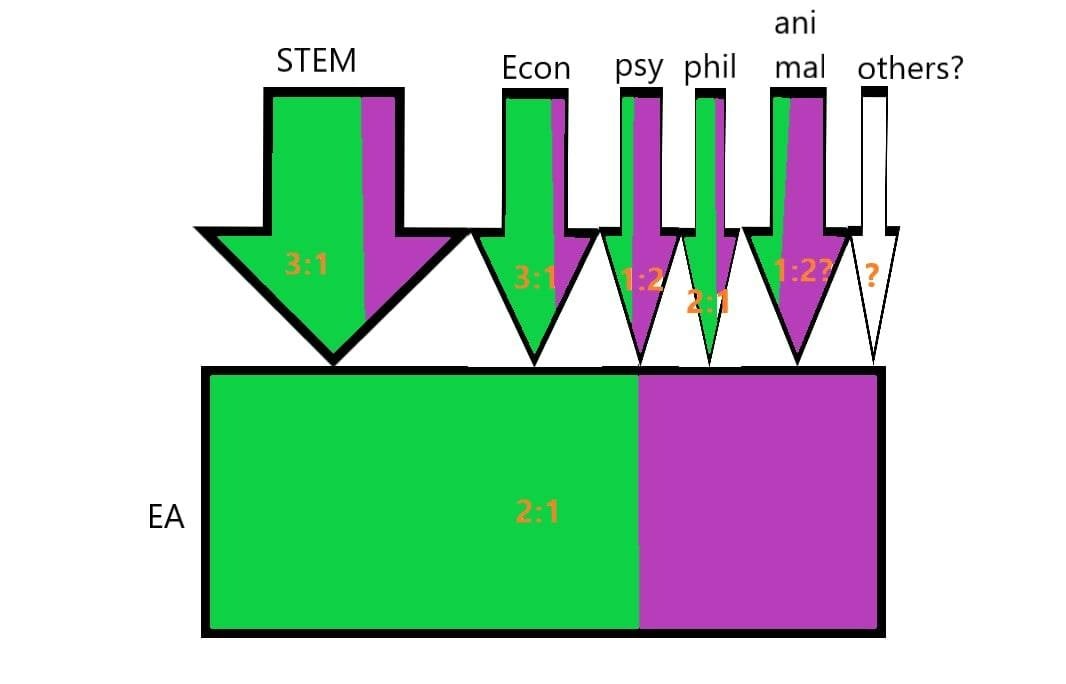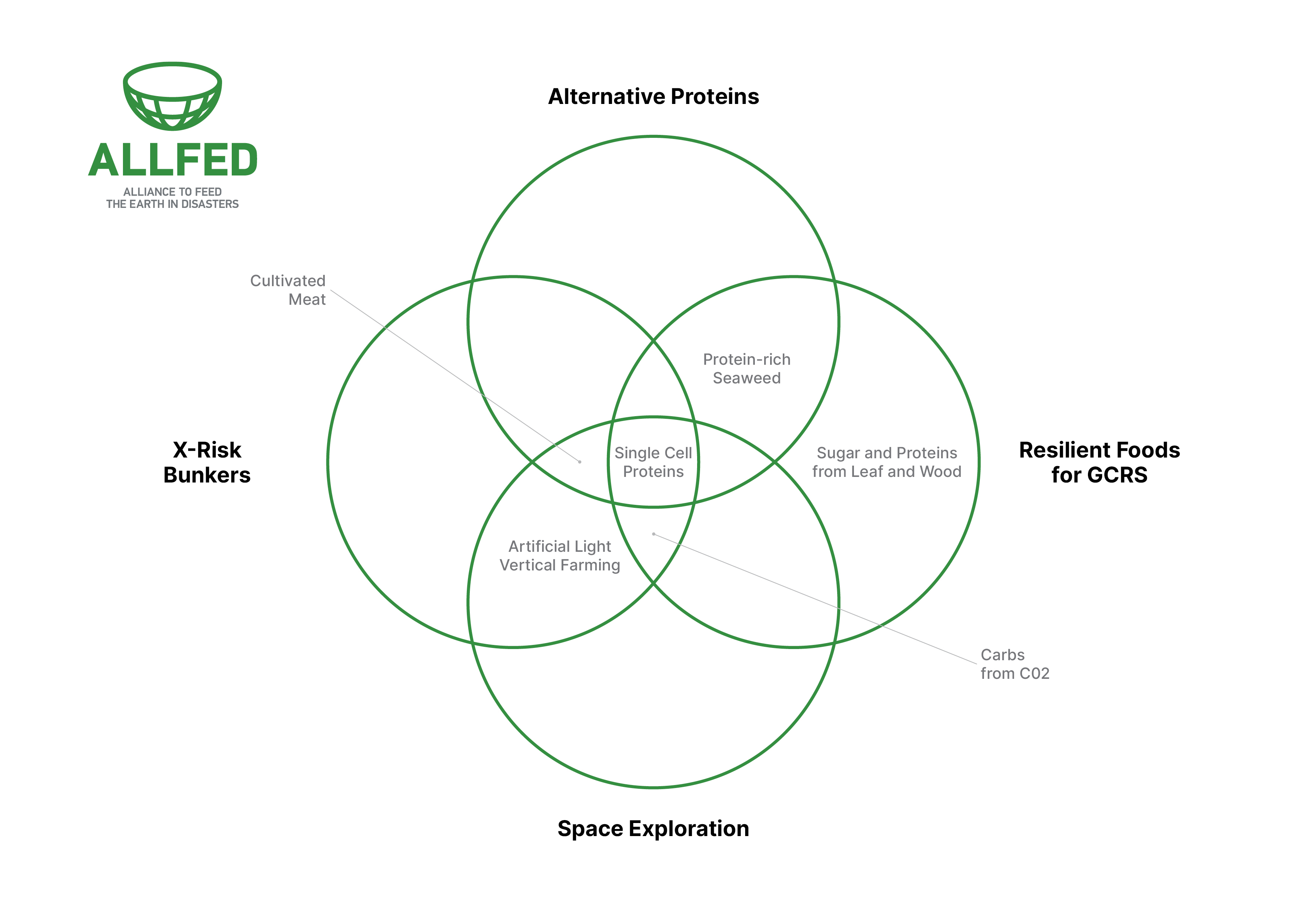JuanGarcia
Bio
"The essential thing was to save the greatest possible number of persons from dying and being doomed to unending separation. And to do this there was only one resource: to fight the plague. There was nothing admirable about this attitude; it was merely logical." - Albert Camus, The Plague
Altruism is the rational response to an irrational world.
Posts 13
Comments35
Topic contributions11
Outreach in groups with higher ratios of women: this is the one thing that comes to my mind every time I think about this. As long as EA is downstream of a few male-dominated disciplines/fields, it seems virtually impossible for the gender ratio to change.
Here's a diagram I made to explain my thinking. The width of the arrow represents how many people are coming from each field, and the colored surface in each figure represents the gender ratio in each field:

If correct, this picture shows that you'd need to do something against this very strong society-wide selection pressure. Short of changing the gender ratios of the disciplines that EA is downstream of (society already spending significant amounts of resources on this), you would need to change which fields EA is getting people from. So here the outreach intervention you propose is equivalent to increasing the width of the arrows that represent female-dominated fields.
Physical engineering lab to build capacity for prototyping hardware ideas with relevance to areas identified as important to the long-term future
Thanks again for this fantastic initiative. Here's the official link to the final Denkenberger publication for those interested.
Is there a way to get email alerts whenever a new UnJournal evaluation gets published?
I like the idea of being more intersectional in our thinking on how to approach the assessment of specific interventions.
On the topic of food, some ALLFED colleagues and I recently gave a workshop on the intersections between different EA cause areas:

On the topic of interventions improving various cause areas simultaneously, some of my colleagues have published scientific articles arguing that the type of work we're doing appears to be highly cost-effective for improving both the long-term future and saving lives in the short term / current generation. Obviously consider a conflict of interest as I work for ALLFED, but this seems very pertinent to the topic of the post.
I'd be happy to help explain how building capacity for responding to abrupt food catastrophes (nuclear winter, volcanic winter, collapse of electricity/industry, etc.) by rapidly increasing food production could help save lives and reduce the chance of civilizational collapse (see ALLFED - Alliance to Feed the Earth in Disasters)
Thanks so much for this effort. I just wanted to say again that EA engineers, including physical engineers, are always very welcome to apply for volunteering, internship and/or open positions at ALLFED - Alliance to Feed the Earth in Disasters.

May I suggest: https://allfed.info/research/publications-and-reports